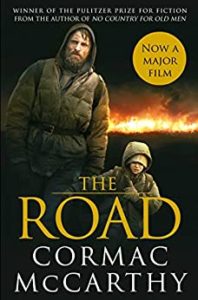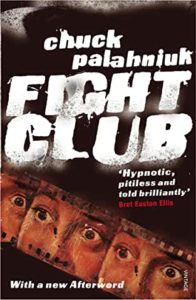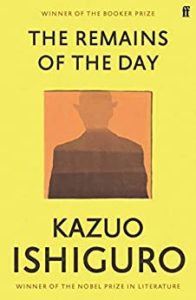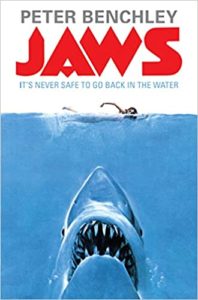Decades: Compiling the Ultimate Library with Ian Patrick Robinson
I am inviting guests to select five books which they feel should be included in my Ultimate Library. When I started this quest back in January all the Library shelves were bare so I recruited some guest curators to add the books – the only rules:
1 – Choose five books
2 – Only one book per decade over any five consecutive decades
I am told it is causing a great deal of soul searching.
So far we have had contributions from Sharon Bairden, Heather Martin and Chris McDonald – all their books are in the Library (here)
Today I am thrilled to be joined by Ian Patrick Robinson. Returning visitors will know that Ian’s books have been firm favourites of mine and How the Wired Weep made it into my Top Ten reads of 2020.
Ian’s Batford books can be bought here: http://fahrenheit-press.com/authors_ian_patrick.html
or through his own website where you can also get the phenomonal How the Wired Weep: https://www.ianpatrick.co.uk/books
His new series (Nash and Moretti) can be found here: https://www.amazon.co.uk/Ian-Robinson/e/B08V37PGVX?ref=sr_ntt_srch_lnk_1&qid=1614897678&sr=8-1
So I leave you in Ian’s company as he makes his five selections.
DECADES
My name’s Ian Patrick Robinson, a retired DS who now writes fiction. I wrote under the name Ian Patrick for my Batford series: Rubicon, Stoned Love and Fools Gold (Fahrenheit Press) as well as How the Wired Weep, which is a standalone of mine.
 I have a new crime series out at the moment under the name Ian Robinson (The Book Folks) that follows DI Pippa Nash and DS Nick Moretti who investigate murder in London. Latent Damage is the first and Cover Blown is out on the 22nd February.
I have a new crime series out at the moment under the name Ian Robinson (The Book Folks) that follows DI Pippa Nash and DS Nick Moretti who investigate murder in London. Latent Damage is the first and Cover Blown is out on the 22nd February.
I try to bring authenticity to my work as well as a character driven storyline that draws on the experience of departments I worked within while in the police.
I thought the task of selecting five books across consecutive decades would be easy – I was wrong!
Here are my five choices starting at the latest and ending at the earliest. These aren’t my top five books, but I decided to use books I own as a physical copy. (There’s an anomaly later but I’m certain you’ll forgive me)
Each book explores a flawed character within a unique world. The very aim I try to achieve with my own novels. What this exercise has shown me is the influence literature has had on my own writing experience. Something I’d recognised but hadn’t fully appreciated.
As with all these things it’s subjective and anything I say here is my own opinion and to be taken as such.
Thank you, Gordon, for the invite and I’m very proud to be part of this venture.
Drive – James Sallis No Exit Press 2011
I’m using the film tie-in edition for this as it was published in 2011. Like the film of the same name this 191p novel is just superb. I watched the film before picking up the book and, as Rubicon has been optioned by the BBC for six-part TV series, I was interested to see how close they stuck to the book’s central lead. For me the book’s opening lines are incredible. I was drawn into the world of Driver (main lead) within the first paragraph. Trust me when I say it’s a skill to accomplish for any writer and Sallis just continues with this throughout. The tagline – GET IN. GET OUT. GET AWAY, is weaved throughout the book like a charm. It surfaces in Driver’s role as wheelsman for hire and in his personal life. It’s an emotional exploration of what it is to be human and how to survive in an uncertain world.
The Road – Cormac McCarthy – Picador 2006
This book blew my mind when I first read it. The setting is as desolate as the writing. McCarthy gets away with not using speech marks throughout the book and yet the story flows so well. The book explores the journey of father and son on a road following an apocalyptic event. McCarthy was asked what the event was, and his reply went something like – What happened doesn’t matter it’s what will they do now that does. To me it’s a masterclass in storytelling. I’ve sent this book to so many people and some get it, and others don’t. That’s the beauty of the prose. The flawed character for me was the father. Although he was doing all he could to protect his son McCarthy lets the reader know that the father is struggling in both mind and body and at some point, he will need to make a choice. Sometimes he will be right other times not so.
Fight Club – Chuck Palahniuk – Norton 1996
A different writer from the first two but a phenomenal one at that. In Fight Club Palahniuk explores masculinity. It examines our cultures obsession with fame, possessions, violence, recognition, ego, affirmation and mental health. I would hazard a guess it contains some of the most quoted lines from book and film for my generation. Jim Uhls wrote the script for the film and he did an excellent job of bringing Tyler Durden to life using many of the lines Palahniuk had written in the book. This book is probably one of my favourites as I own two signed editions of it. One is a limited edition that could only be purchased in the US and Canada. I begged a relative to get it for me.
The line from the book that has stayed with me is: It’s only after we’ve lost everything that we are free to do anything.
I was diagnosed with a rare form of muscular dystrophy around 2011 and had to retire from the police in 2015 when it became physically too much for me to manage. I have this quote on my desk and this book got me through some tough times. I’m now writing my ninth novel as a result. Books are powerful tools for hope and change. We should never underestimate a book’s worth at the right time in life.
The Remains of the Day – Kazuo Ishiguro – Faber 1989
What a beautiful tale of unrequited love this book is. Narrated in the first person we’re taken on a journey of discovery through the eyes of Stevens an aging butler at Darlington hall in the fifties. I saw this as an exploration of love, friendship, missed opportunity, class and social conditioning. The setting is unique and in stark contrast to that of Du-Maurier’s Rebecca. I was taken to a time I didn’t know and felt alive within the world Steven’s inhabits. His dynamic with Miss Kenton is inspired and wonderfully told. A loving and sensual book that’s gentle on the mind but has stayed with me for so long. I read this again during the first lockdown for pure escapism.
Jaws – Peter Benchley – Bantam 1974
Last but by no means least, Jaws was probably one of the first books I appreciated reading as a youth. A change from Sven Hassell novels and I fell in love with the cover art. What boy wouldn’t fall for a book with the snout and teeth of a huge shark pointing towards a swimmer on the surface of the sea? This was another book I re-read during lockdown and I’m so glad I did. Here’s the thing with the book v the film – it’s not all about the shark! The shark story is secondary to the main tale of Chief Brody’s decaying marriage and how will he hold it all together while his wife has an affair? I found the book to be way better than the film for the human side of the narrative. It’s an exploration of one man’s grip on a life that’s falling apart. Benchley did a great job with this. Here’s the anomaly I mentioned in the beginning that you’ve forgotten if you’ve read this far – I don’t own a physical copy of Jaws only Jaws 2 written by Hank Searls.
Huge thanks to Ian for sharing these wonderful selections. Linking them with the flawed character theme added an extra level of complexity to the challenge – I think if I asked some of my future guests to link their selections it may cause a bit of a backlash!
My personal completion ratio for these selections is just 20% – I read Jaws while I was in my mid-teens and was reading every horror novel I could get my paws on.
All five books will be added to The Library.
Decades Will Return




